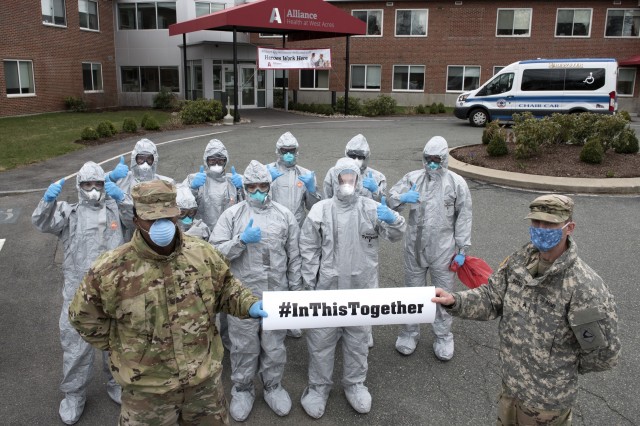 Gary Ghirardi | OpEd | June 2020 -Back in May of 2020, I caught an interview on Pacifica's KPFK radio on a morning program where a young woman was explaining the loss of her aunt that was a nurse engaging patients with the Coronavirus. She recounted her aunt telling her that she was not provided with masks or gloves and that a patient had sneezed in her face a week prior to her falling ill. All this culminated with a Zoom meeting with the family saying goodbye before she died. Later that day I passed a local hospital that had placed a large banner on the street honoring our heroes that were fighting the current epidemic.
Gary Ghirardi | OpEd | June 2020 -Back in May of 2020, I caught an interview on Pacifica's KPFK radio on a morning program where a young woman was explaining the loss of her aunt that was a nurse engaging patients with the Coronavirus. She recounted her aunt telling her that she was not provided with masks or gloves and that a patient had sneezed in her face a week prior to her falling ill. All this culminated with a Zoom meeting with the family saying goodbye before she died. Later that day I passed a local hospital that had placed a large banner on the street honoring our heroes that were fighting the current epidemic.
In my work for The National Network Opposing the Militarization of Youth, I am constantly reminded of a similar refrain from those pushing back against our work of getting youth, with limited opportunities for their futures, to consider all the ramifications of serving in the United State's post 9/11 military. That push-back always invokes the heroic diatribes defending those who serve in our military branches and a forceful reminder of how dare we try to diminish the sacrifice of heroes who have served or are considering serving by revealing the harmful realities of military service. Of course we do not diminish their service but try to put it in context to a fuller and more accurate disclosure of what military recruiters manage to leave out of their enlistment appeals. The relationship between these two scenarios, and the contradictions inherent in both, stayed with me all week and encouraged this short OpEd.
What seemed so prescient to me was that both these health workers and young soldiers are asked to put themselves in harms way for the rest of us yet we seem to not strive, as a country, to provide them with adequate protections, compensation fitting the hazards they face, or sound governmental policies to avoid virulent pandemic or violent conflict and then we resort to platitudes of recognition rather than prioritize human concerns that could had made these situations less lethal. I think that our “essential workers,” our warriors included, are our expendables, that can be sacrificed to flawed planning and a lack of just and humanistic social principles without our society coming to terms with what has caused these deplorable conditions in the first place.
Our nation, as a culture, has consistently normalized and created cover for our injustices and have reduced terrible suffering to cliched and tired justifications for empty honors. Likely, for many of us individually, we are not comfortable with such representations but we have become collectively distant from the fallout of disasters that we don't own and perceive are outside our individual control including our endless and opaque wars.
Now, as we enter a perfect storm of a global pandemic and an economic disaster rivaling our pre-WWII depression, coupled with a shattering of our national political leadership heading into a circus of a presidential election, we seem to be approaching a difficult choice that needs to be enacted that the citizenry may lack the political will and organization to see through.
Are we prepared to look in the mirror at our true national face, and make the changes so necessary to heal a very broken and dysfunctional country? To redirect the massive waste of resources expended for mounting militarism into human requirements like national healthcare, housing, and food security for nearly half of our population that are on the brink of insolvency with this crisis? Or will we use perpetual and escalated warfare to pull our economy up again as did happen seventy-five years ago? Based on the absence of a leader with the ability to make the kind of reforms needed to overcome the power of entrenched global economic interests that seem insurmountable at this point, the future looks uncertain.
If we choose the latter course and proceed with the expansion of the war economy, now launching into space, the price it will pay upon the poor and fledgling middle-class, in multiple nations, will make many more expendables in the process and may even bring our entire species and the others we share this planet with to an end. The stakes are that profound.
###







